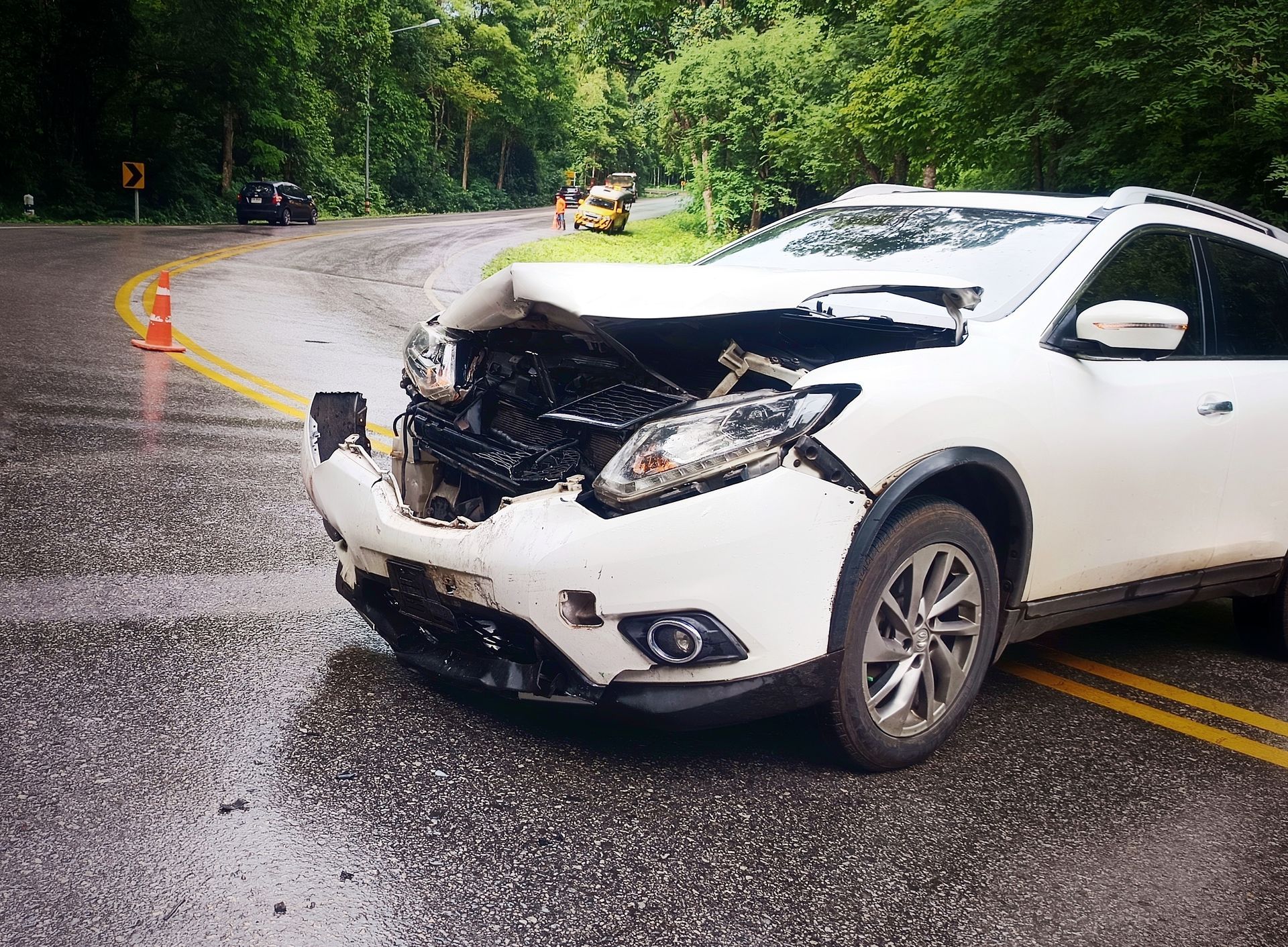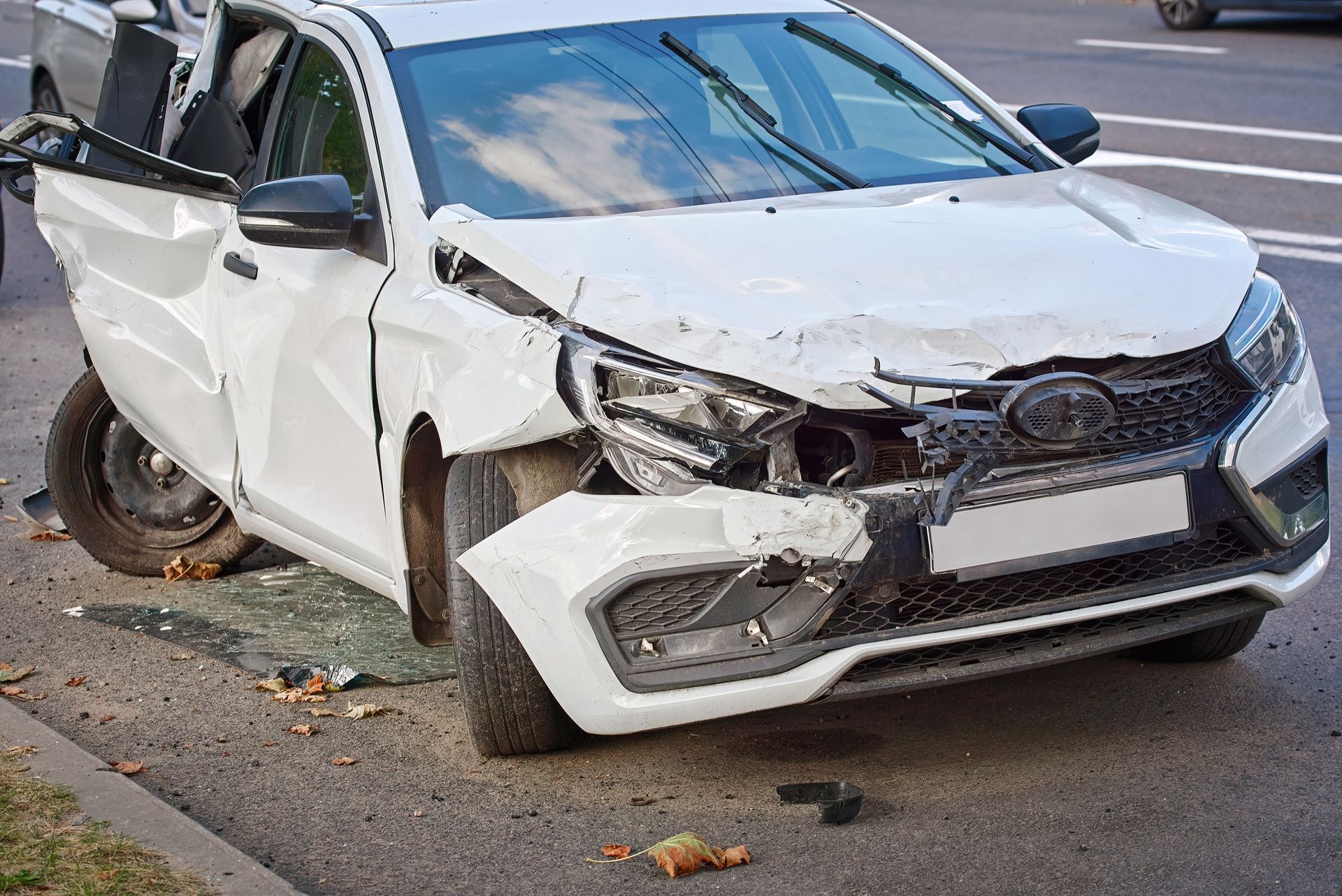Sargon Law Blog
Recent Blog Posts
How Do I Know If I Have the Right Type of Car Insurance?
Auto accidents are among the most common causes of serious injuries and property damage in the United States. In 2021, there were over 120,000 car crashes in Arizona, resulting in over 35,000 injuries and more than 1,000 deaths. Safe driving practices can reduce your chance of getting in an accident; however, driving is never without risk. Our Phoenix personal injury attorneys recommend purchasing the right types of car insurance to provide you with financial protection.
5 Main Types of Car Insurance
Like most states, Arizona requires drivers and vehicle owners to purchase liability coverage. You may also benefit from having other types of auto insurance.
1. Liability Coverage
If you or someone you allow to drive your vehicle negligently injures someone else or damages property while operating your vehicle, Arizona law may require you to pay for those damages. Liability insurance pays up to the limits of the policy for the medical expenses, property damage, lost wages, pain and suffering, and other damages you legally owe to another party because of a car accident.
You must purchase two types of car insurance on your liability policy. Bodily injury liability pays for injuries to other drivers, passengers, and pedestrians. Property damage liability pays for damage to other people's property, such as vehicles, personal property, buildings, and public property.
Liability insurance also covers your legal fees if someone sues you because of a car accident. Liability insurance does not pay for your injuries or property damage.
Your liability coverage usually applies to injured passengers in your vehicle when you are at fault for an accident. However, your policy may limit coverage for household or family members to $25,000 per person and $50,000 per accident even if you purchase higher limits.
Minimum Requirements
You must purchase at least $25,000 per person and $50,000 per accident bodily injury liability coverage and $15,000 property damage coverage. Purchasing these types of car insurance fulfills your legal requirement, but you may want to consider purchasing higher limits. If you cause an accident that seriously injures or kills someone or significantly damages someone's property, you could be responsible for paying thousands of dollars in damages beyond your policy limits if you do not have enough coverage.
Extended Coverage
In certain circumstances, your liability coverage may extend beyond your covered vehicle. For example, your liability policy covers you when driving someone else's car. However, your coverage is excess over the vehicle owner's coverage.
If you cause an accident in a state with higher minimum liability requirements, your policy will probably automatically cover you up to those minimum limits if the limits on your policy are lower than the requirement. Most kinds of car insurance extend liability coverage to a trailer you are pulling behind your covered vehicle.
Liability insurance usually extends to rental cars but is secondary to the rental car company's insurance. Your policy may provide limited coverage within 25 to 50 miles of the Mexican border. However, Mexico law requires vehicle owners to purchase separate liability coverage to legally operate a vehicle in Mexico.
2. Uninsured and Underinsured Motorist Coverage
Almost 12% of the drivers in Arizona do not have any insurance. If an uninsured driver injures you in a car accident, that driver may not have the financial resources to pay for your damages. Uninsured and underinsured motorist coverages are types of car insurance that protect you when someone else is unable to pay for damages they cause in a car accident.
Uninsured motorist coverage pays for your medical bills, lost wages, pain and suffering, and other expenses caused by injuries sustained in a car accident with an at-fault, uninsured motorist. This coverage may also apply when an unknown hit-and-run driver causes an accident.
If the person that caused your accident does not have enough insurance to pay your total costs, underinsured motorist coverage may pay the difference, up to your policy limits. For example, if someone owes you $50,000 because of a car accident they caused, but they only have $25,000 coverage, your underinsured motorist coverage will pay the $25,000 difference.
Arizona law does not require you to purchase uninsured or underinsured motorist coverage. However, if you do purchase it, you must purchase an amount that is at least equal to the minimum liability coverage requirements.
3. Collision Coverage
Collision coverage is one of the optional, no-fault types of car insurance you can use regardless of who caused an accident. However, your policy may exclude coverage for some drivers and uses of your vehicle.
Collision coverage pays for damage to your covered vehicle caused by a collision with another vehicle or object. Most policies pay to replace or repair your vehicle up to the actual cash value of the vehicle less your collision deductible.
Depending on your policy, your collision coverage may extend to a rental vehicle but does not cover you for driving a borrowed vehicle. You will probably need to purchase separate coverage for anything you want to pull behind your vehicle.
4. Comprehensive Coverage
Comprehensive coverage is another of the optional types of car insurance. It pays for damages to your covered vehicle caused by something other than a collision. Some policies call this coverage "other than collision."
Typically covered causes of loss include:
- Weather damage
- Theft
- Fire
- Vandalism
- Falling objects
Comprehensive coverage also commonly covers damage caused by animals, natural disasters, and civil disturbances. The policy limit is typically the actual cash value of your car and a deductible usually applies.
5. Medical Payments Coverage
Medical payments coverage is an optional coverage that pays for the medical expenses and funeral costs of the driver and passengers of your vehicle regardless of who caused the accident. Medical payments coverage does not pay for lost wages, essential services, or pain and suffering, and only pays up to the policy limit.
Medical payments coverage is usually secondary to other types of coverage, such as health insurance. However, you can use it to cover your deductible and co-pays on your health insurance. If your passengers have their own insurance, their policies will usually pay first.
Other Types of Car Insurance
Many insurance companies offer other kinds of insurance that provide additional coverages or cover losses that are specifically excluded on a standard personal auto insurance policy.
Rental Reimbursement Coverage
Rental reimbursement coverage pays for you to rent a car or take public transportation while your car is being repaired due to a covered cause of loss. It does not pay for a rental if you cannot use your car because of a mechanical breakdown or routine maintenance.
It also does not apply if the damage to your car is due to a loss you do not have coverage for. For example, if you have collision but not comprehensive coverage and you hit a deer, your rental coverage will probably not apply.
Rental coverage usually comes with both a daily limit and a maximum number of days you can use the coverage. Most insurance policies will pay for you to rent a car from anyone. However, many insurance companies partner with rental companies that give them a lower rate and other benefits, such as the ability to directly pay the rental car company, rather than you having to pay upfront and file a claim to get reimbursed.
Glass Coverage
Comprehensive and collision types of car insurance pay for damage to the glass in your car. However, these coverages usually have a deductible. Glass coverage pays to repair or replace auto glass without a deductible. You can use this coverage to pay for windshield replacements or repairs that might otherwise be less than the deductible on your policy.
Gap Coverage
Because cars depreciate as much as 20% in the first year of ownership and continue to decline in value as they age, many people owe more money on their cars than their cars are worth. Insurance companies will usually only pay up to the actual cash value of the car.
If the balance of your auto loan exceeds the ACV of your car, you must pay the difference out of pocket. Gap insurance pays for the difference between the ACV of your vehicle and the remaining loan balance.
You usually must purchase collision and comprehensive coverage to be eligible for gap insurance. Some lenders may require you to purchase gap insurance to qualify for a loan.
Many auto dealers sell gap insurance, but you may be able to purchase it less expensively through an insurance company. The Insurance Information Institute recommends considering gap insurance on your car if you made a down payment of less than 20% or took out a loan for more than 60 months.
New Car Replacement Coverage
Most types of car insurance settle losses at actual cash value. Some insurance companies offer customers the option to purchase replacement coverage on newer vehicles or provide this coverage automatically as a perk to desirable policyholders.
Towing and Labor Cost Coverage
Some policies call towing and labor cost coverage "roadside assistance." Specific coverages vary by policy but usually include:
- Towing
- Jumpstarts or battery replacement
- Tire repair or replacement
- Lockout service
- Gas or oil when you run out
Unlike collision and comprehensive, these coverages apply to breakdowns or other roadside emergencies, rather than car accidents. Limits usually apply and the coverage typically only pays for labor, not parts. Unlike some standalone roadside assistance plans, this coverage commonly only applies to the covered car and does not follow you in someone else's car.
Ride-Sharing Coverage
Most personal auto policies do not cover business uses of your vehicle, such as driving it for a rideshare company. You may be able to purchase rideshare coverage as an endorsement or a separate policy.
This coverage is usually excess over any coverage provided by the rideshare company; however, you may be able to use it to cover any applicable deductibles. Rideshare coverage also covers gaps, such as when you are available for hire but have not accepted a ride, that neither your personal policy nor the rideshare policy covers.
Classic Car Insurance
Most types of car insurance are not designed to cover specialty vehicles. The III considers cars that are 25 to 30 years old to be classic cars, but the definition varies by insurance company. Because standard auto policies only pay the depreciated value of cars, they may not adequately cover a classic car.
Classic car policies cover classic, muscle, vintage military, hot rods, luxury, exotic, and other high-value vehicles that standard insurance does not fully cover. The limits of these policies are typically a value that the insurance company and the policyholder agree to, rather than ACV.
To qualify for these policies, you may have to meet specific requirements, such as not using the car as your daily driver. There may also be limitations on how many miles you can drive the car per year, and you may need to prove that you properly store the vehicle when not driving it.
Arizona Automobile Insurance Plan Coverage
All insurance companies evaluate who they are willing to insure based on factors such as credit score and driving history. If you cannot get coverage on the standard market, you may be able to obtain coverage through the Arizona Automobile Insurance Plan.
Determining the Type of Car Insurance You Need
The car insurance you need depends on where you live, how you drive, and what type of vehicle you own. You must purchase at least the minimum coverages that Arizona law requires, and your lender may impose additional requirements. Beyond that, you must compare the cost of optional coverage to the benefits of having the coverage and the potential risks of not having it.
The III recommends multiplying the annual cost of optional coverages by 10 and only purchasing them if the value of your car is at least equal to that amount. An insurance agent can help you decide which insurance you should buy.
Getting Help With All Types of Car Insurance
No matter which type of car insurance you have, you may have difficulty collecting the money an insurance company owes you. The experienced Phoenix car accident attorneys at Sargon Law Group can help you recover the compensation you deserve. Contact us for a free consultation.





